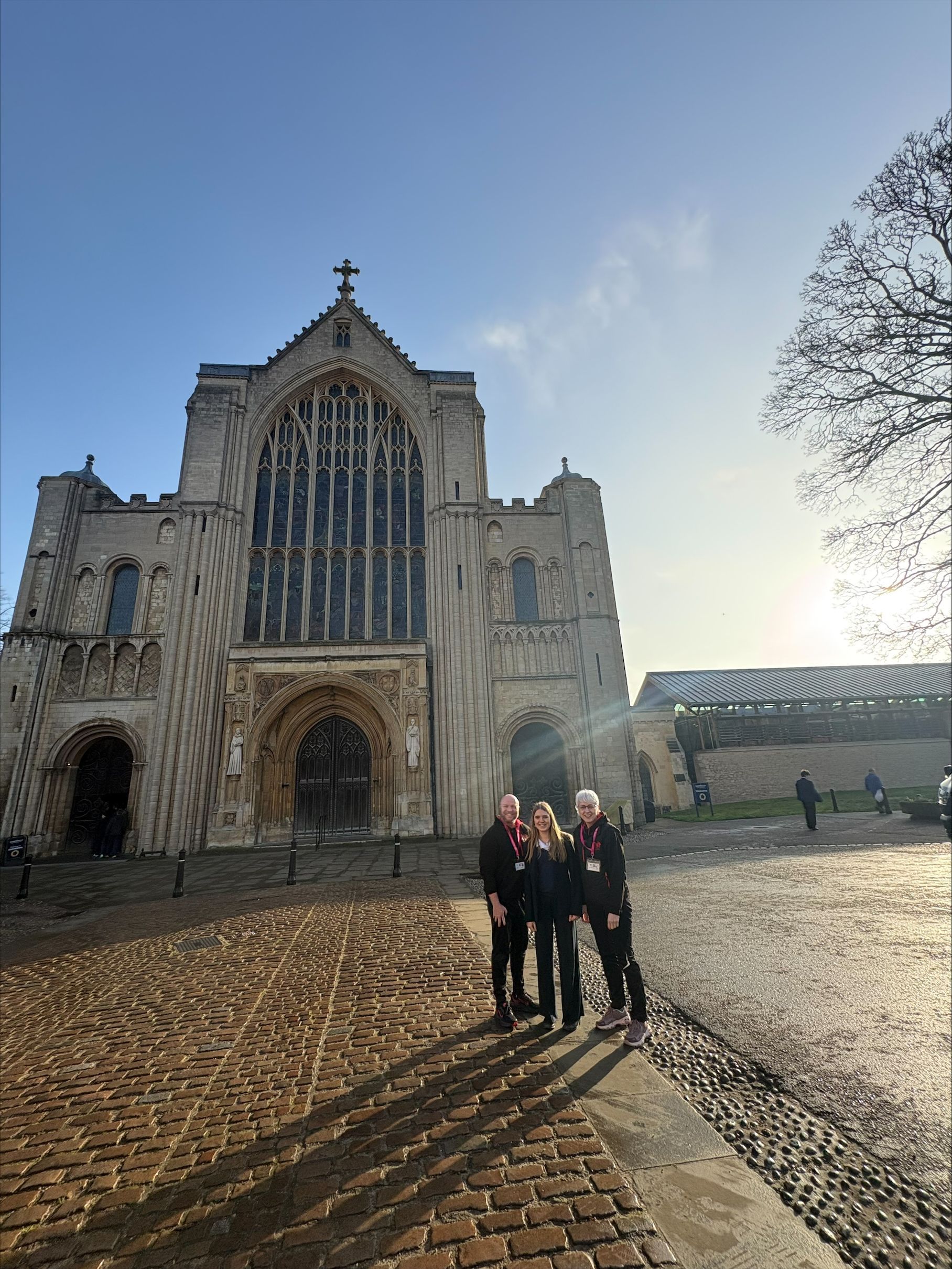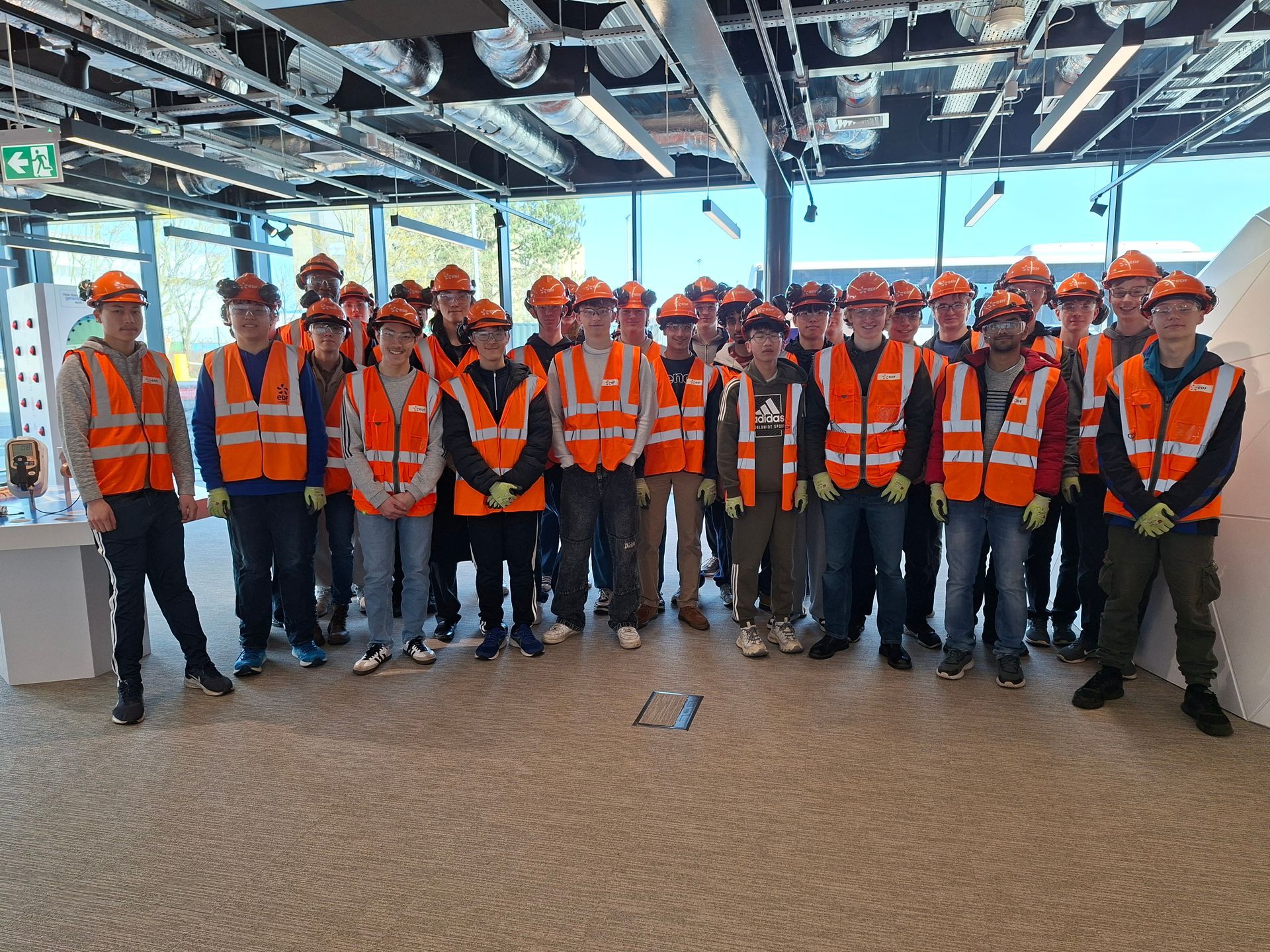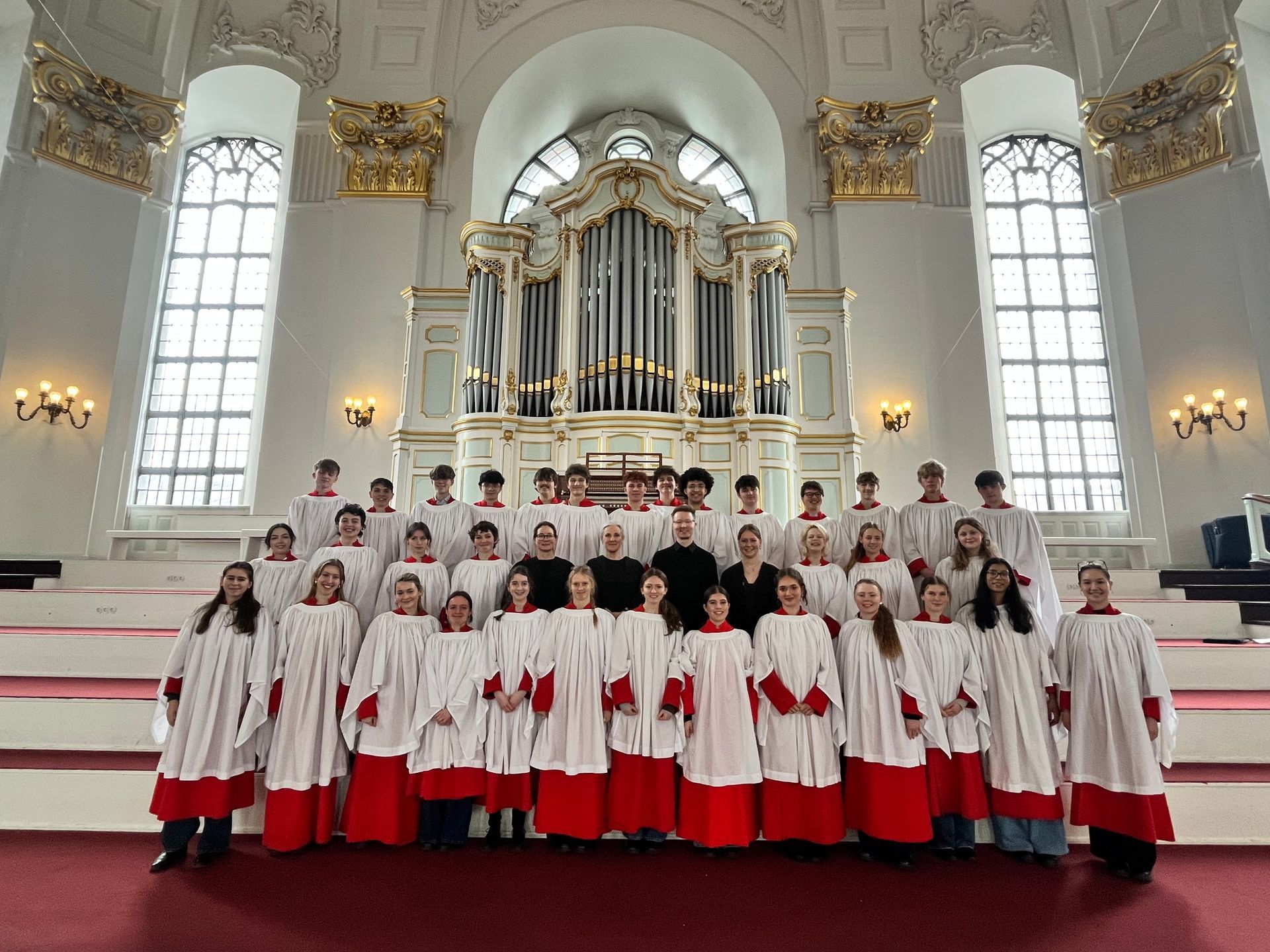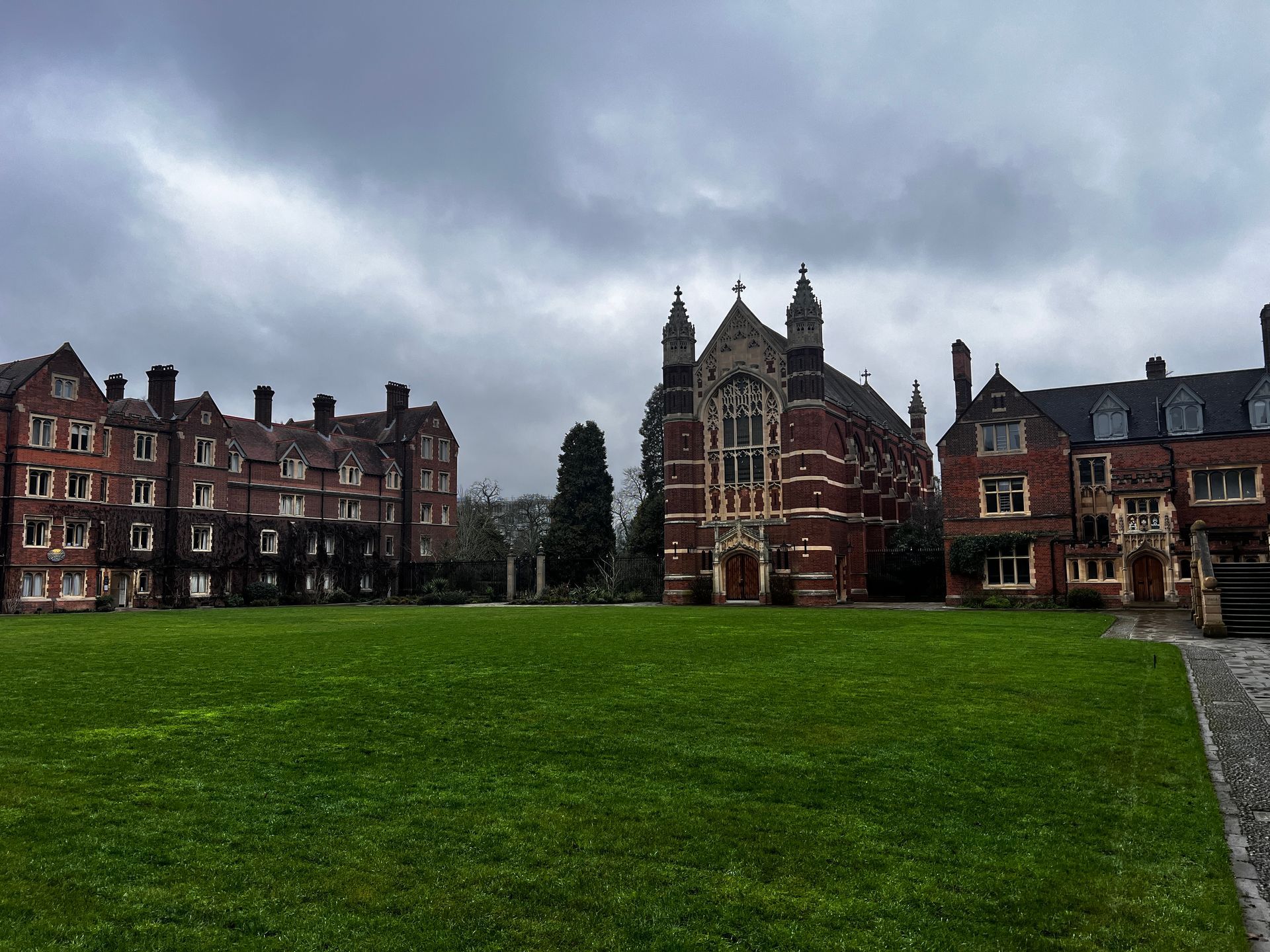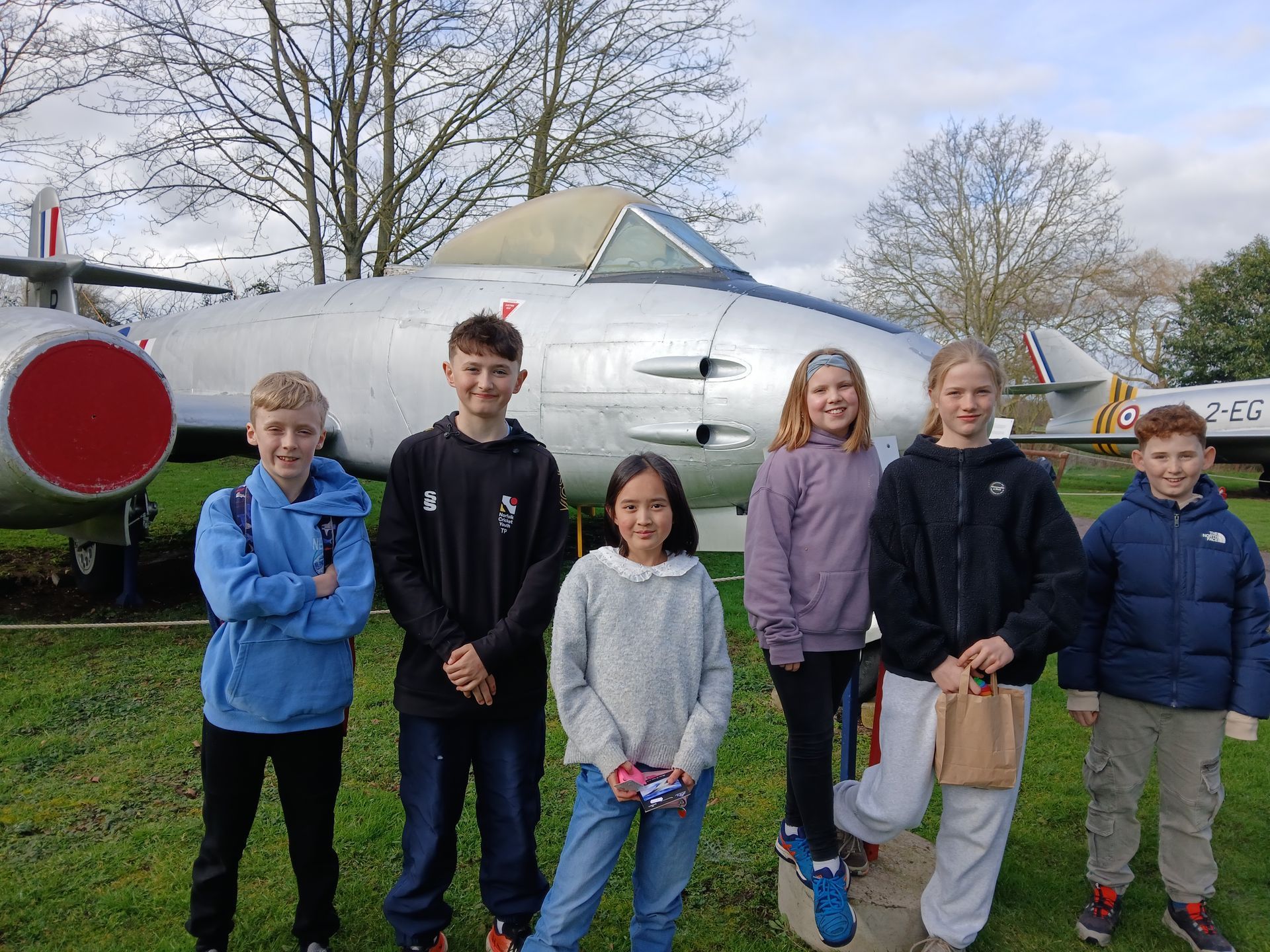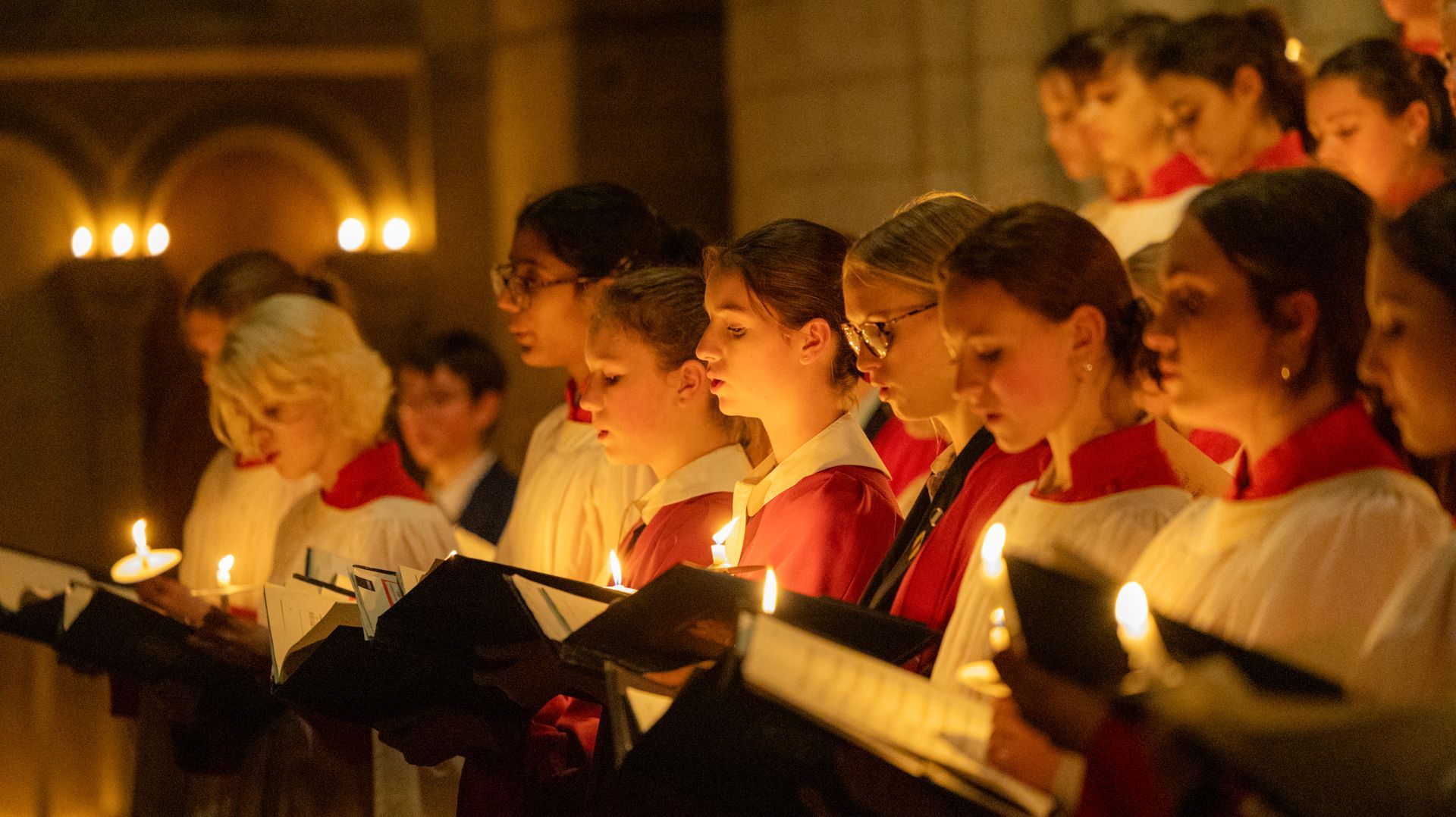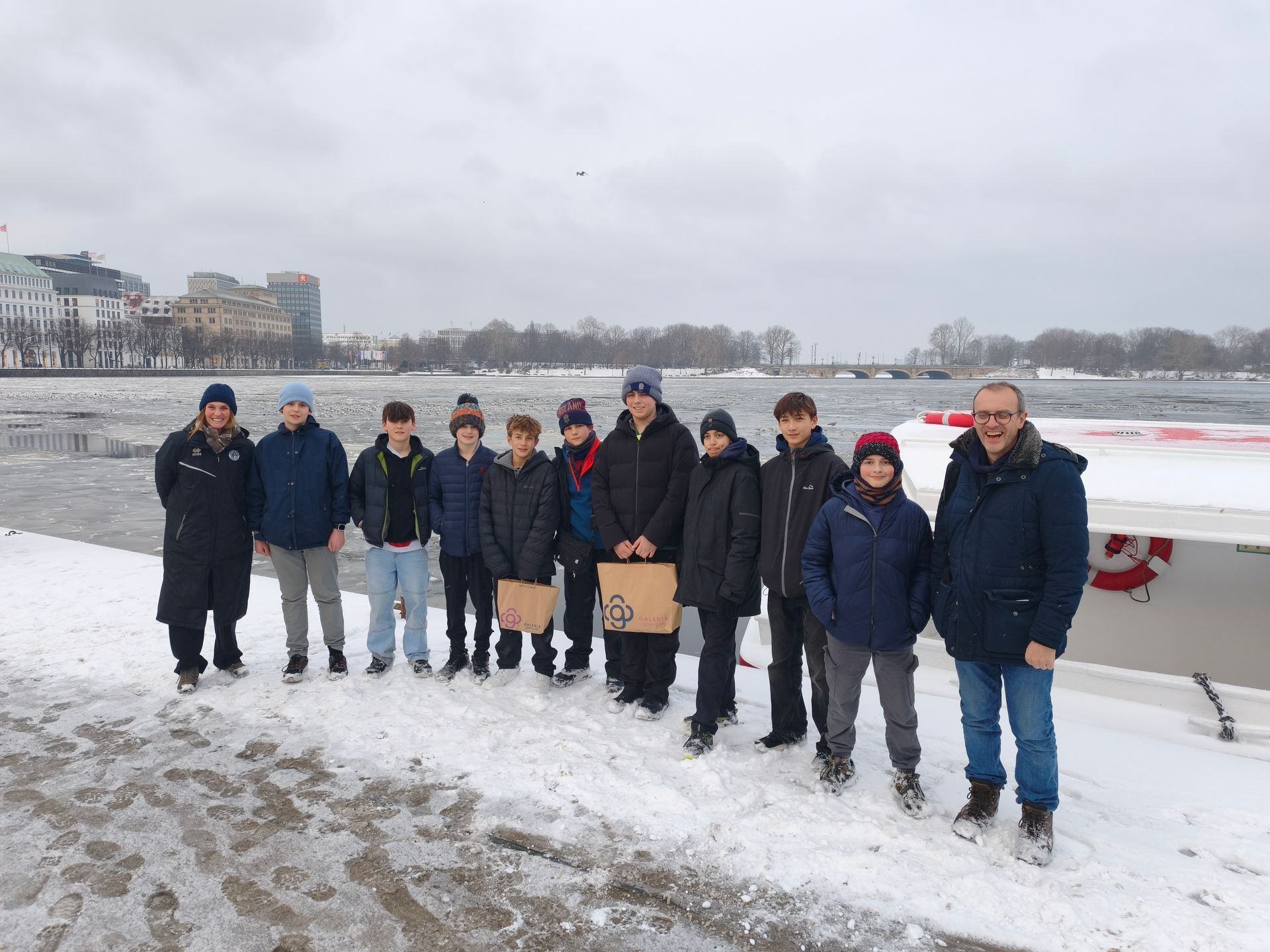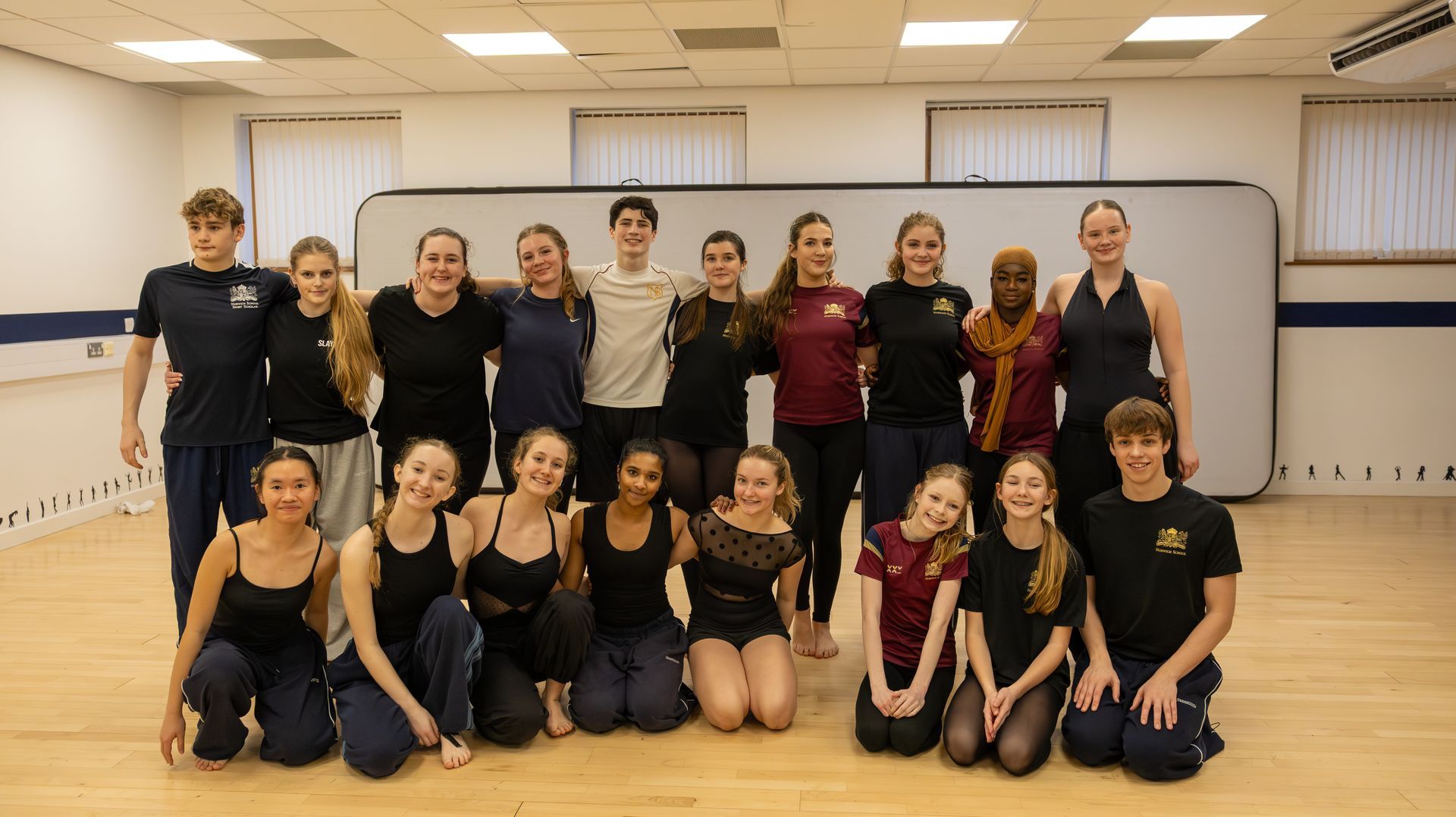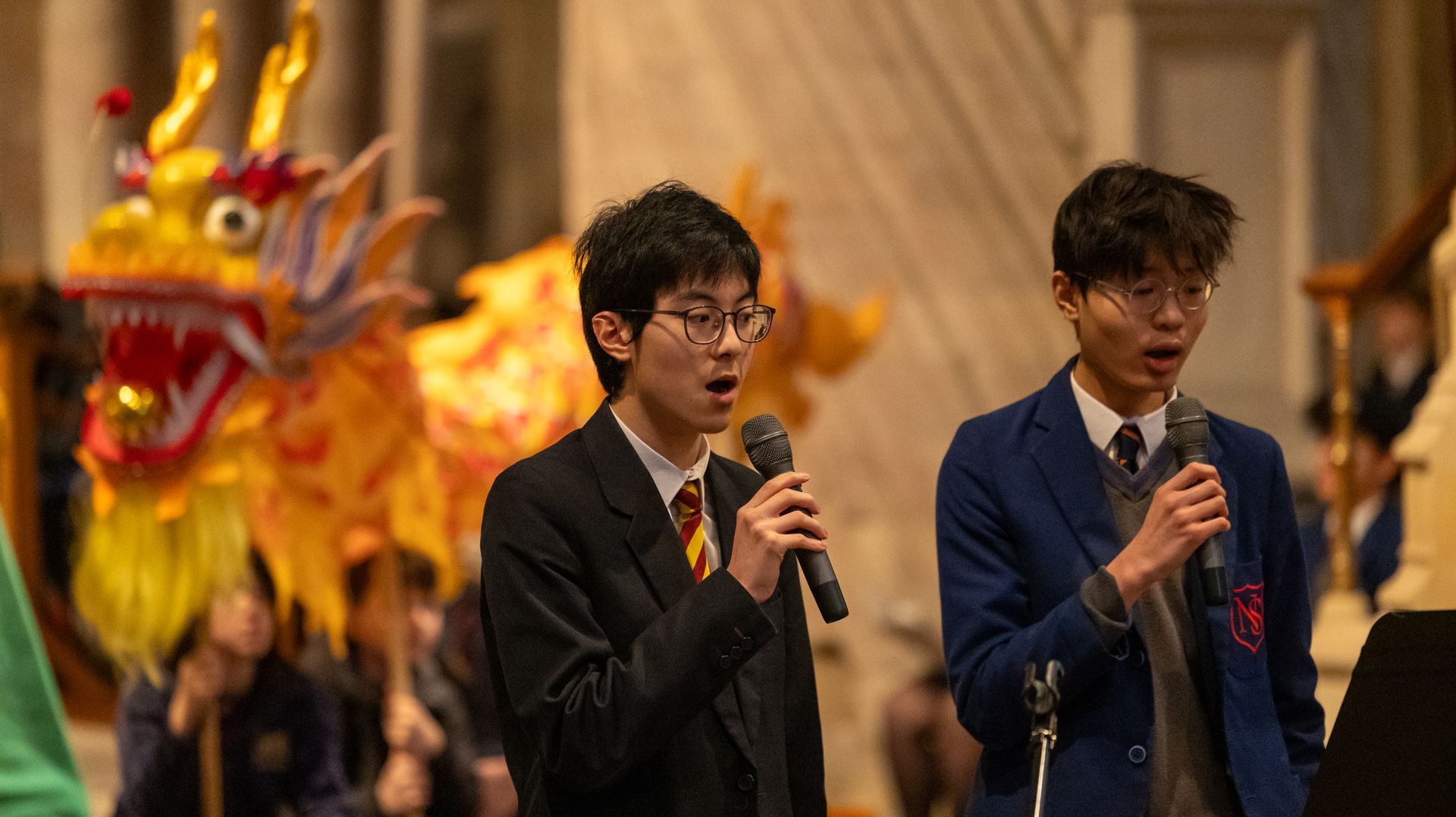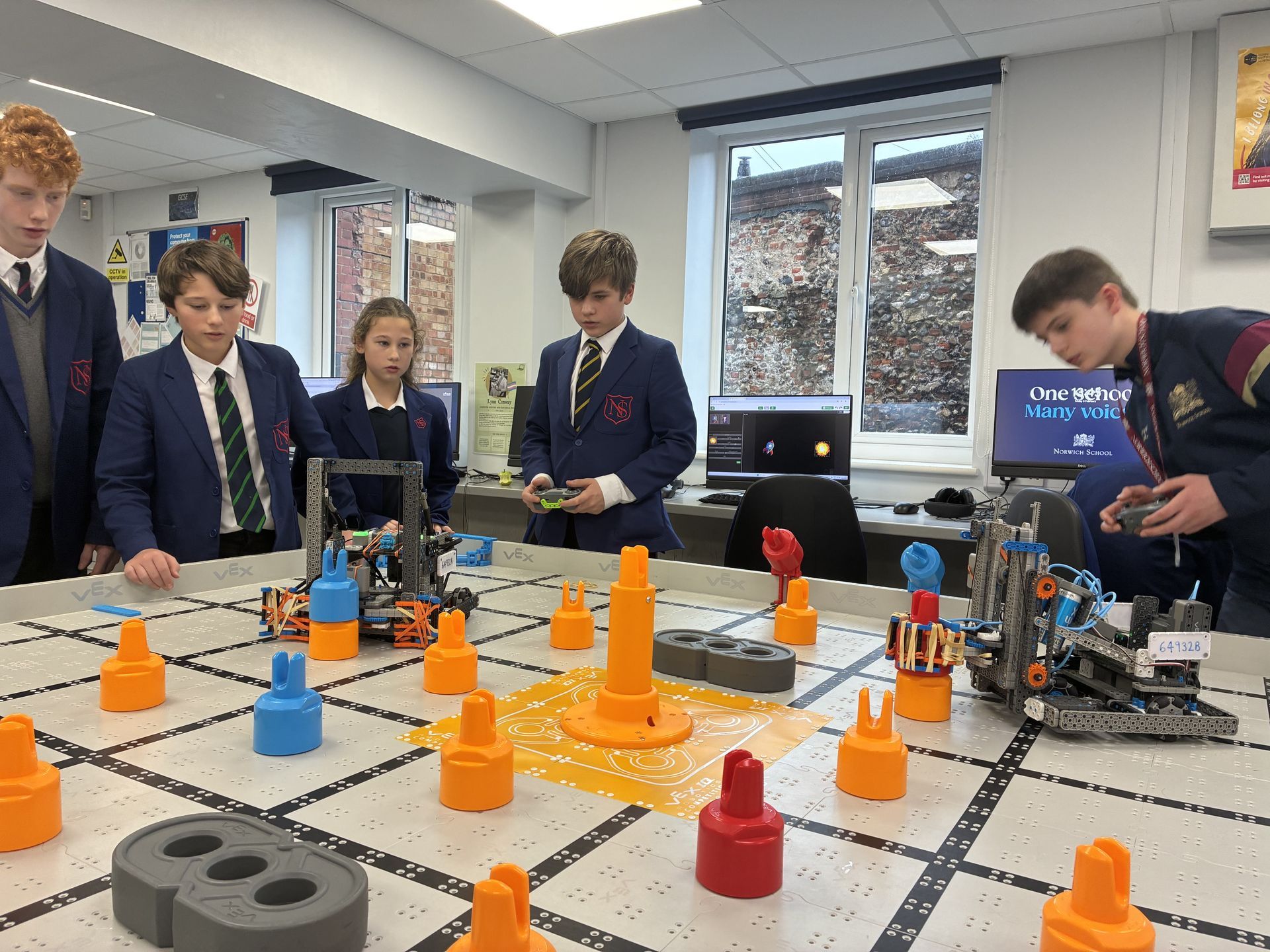INTERVIEW WITH PROFESSOR CHARLES FORSDICK (ON 78 - 87)
September 12, 2023
On Friday 8 September, we were honoured to welcome Professor Charles Forsdick ON, as guest speaker for Prizegiving September 2023. Professor Forsdick is Drapers Professor of French (elect) at the University of Cambridge, Fellow of the British Academy, a Member of the Academy of Europe and a former pupil at Norwich School. During his time with us, Professor Forsdick was kind enough to answer some questions we had for this inspirational ON...
When were you at Norwich School?
From 1978 to 1987. I was an exact contemporary of Jonathan Pearson, your Development Director, who remains a close friend.
What House were you in?
The legendary Coke house.
What did you study for A Level and what did you go on to study at University? French, German and Latin. Then Modern Languages at New College, Oxford
Can you tell us a bit about your career since leaving school?
Having graduated in Modern Languages from Oxford University, my PhD in French Studies at Lancaster soon followed, resulting in a lectureship post up in Scotland at the University of Glasgow. At 31 years of age, I was appointed the James Barrow Professor of French at the University of Liverpool where I have stayed for over 22 years, during which I was elected a Fellow of the British Academy and Member of the Academy of Europe.
I am hugely excited to be taking up the Drapers’ Professorship of French at the University of Cambridge next month.
I am pleased to have been associated with the school for over four decades and have also been helping with your WoLLoW initiative of late.
What was your fondest memory of being a pupil at NS?
There’s lots of competition for that. I remember I particularly used to enjoy the annual sponsored 24-hour football, which was great fun.
However, the best memories have got to be the school exchange trips to France and to Germany. We went to Wissembourg in Alsace, and we went to Linz in Germany. It was always a great privilege to stay with families, to experience everyday French and German life, and to improve the language skills alongside it.
I spend quite a lot of time now campaigning to make sure that experience is still available to pupils in the 21st century, post Brexit and post pandemic, because it’s getting increasingly difficult. Those are absolutely my fondest memories.
Are you still in touch with friends you made at the School?
I am. I’ve maintained really good friendships with a number of people I was at school with. Some of them are still in Norfolk, some located more widely around the country and the world. I think what’s interesting, 35+ years on, is that people are doing very different things, but we’ve all got those shared memories of times here. As you get older, I think they become increasingly important.
Returning as a visitor to the school today, what are the biggest changes you noticed?
Obviously, the body of pupils has changed quite radically, particularly with the admission of girls. Having been around the school a few times recently, the thing that strikes me most is the way in which pupils are now purposefully prepared with a sense of social responsibility. They’re really nurtured in ways that makes them ready to face up to a lot of the challenges of the 21st century and, ideally, to be part of the solution as well. That is part of what we did, but it was less clearly embedded, and that’s something that really impresses me now.
Looking back what nugget of advice or top tip would you give Charles F on his first day of school?
I’m just trying to picture me as that little 9-year-old from Dereham crossing the threshold for the first time….
Back then, I would not have been aware of a bit of Norfolk wisdom which I think is absolutely essential, and it’s the UEA motto, Do Different. It’s advice that I draw on regularly now. I would apply it back then and say: ‘Embrace it at every opportunity that comes to you and work really hard to ensure you play your part in a happy diverse inclusive environment. However, within all that, plough your own furrow.’ I think in retrospect I tried to do that, but whether as an 9-year-old you’re conscious of that, I don’t know.
Any tips for our existing pupils?
This is going to be really obvious but I’m going to share it anyway. I think what’s really important (both in formal education but in life-long learning as well) is to retain your curiosity and make sure that your knowledge base is as broad as possible.
Going back to something I said earlier, in terms of what impresses me about the school now, it’s clear that we need to prepare pupils, students, and all young people to face up to the major challenges in the 21st century. There’s probably no ready solution to them but we’ve got to grapple with them nevertheless. To do that I always think we need resources which are drawing from across a broad range of areas.
I am really frustrated by the overspecialisation that the UK education system tries to impose on us, particularly at A Level. One thing I would say is if somebody wants to study STEM subjects that’s very good, but never forget you can do two sciences and add a humanities subject to that. I’d obviously particularly recommend a language-based subject.
However, key to that curiosity and broad knowledge base is, I believe, being able to make choices that give you a real breadth of experience so you can work across disciplines and academic fields, deploying a whole range of knowledge and skills, no matter what life throws at you.
You can read Professor Forsdick’s inspirational address here:
Deputy Lord Mayor, Head, Chair of Governors, families and friends, members of the school…
Many thanks for your kind introduction – and also for the invitation to present the prizes and to speak this evening. I have many good memories of the end-of-term speech days during my own time at Norwich School. When I told my mother I was the guest of honour this evening she replied, ‘They used to invite distinguished people to do that’, listing the Governor of the Bank of England, an MEP and others – but I am so honoured to be with you, and I am pleased that my mother, who has been an indefatigable supporter of me throughout my studies and subsequent career, could be here tonight also. This seems like an appropriate point to pause to acknowledge the contribution of all your parents, family and friends accompanying you this evening. I am sure they have been equally supportive in your endeavours and are rightly proud of your achievements that we have gathered to celebrate. I also, of course, pay tribute to the work of your teachers, without whom this event simply would not take place. It is with particular pleasure that I am able to join you on an evening when my own inspirational French teacher Humphrey Bedford-Payne is receiving a long service award – he doesn’t look a day older than when I first encountered him in 1983.
As an academic, I attend numerous graduations. They are events that I always relish because I know that each person crossing the stage has their own individual story: about how they have reached this point in their studies, about what the current achievement represents in their onward journey. Some of you are just beginning your careers at Norwich School, others are preparing for Higher Education, for apprenticeships, or for the world of work. Tonight, we have gathered to celebrate all of your academic achievements and your contributions to the broader life of this place. One of the great privileges of studying at Norwich School is the opportunity it affords to grow in confidence, in knowledge and in experience in the environment of this magnificent Cathedral precinct. This is surely one of the most beautiful places in the historical built environment of our country. It was here that – like many of you – I had the privilege of studying languages, ancient and modern, I was given the opportunity –through visits and exchanges – to experience life abroad, I was able to develop friendships that continue over four decades on.
In preparation for these reflections tonight, I returned to an essay I wrote in 1986 and for which I was lucky enough to win the Friends’ Local History Prize. It was a study of the life and work of George Henry Borrow. Those of you lucky enough to live in East Dereham will already be familiar with this 19th-century traveller, novelist and translator. Borrow was also an Old Norvicensian who claimed to speak over forty languages and who is remembered in particular for his extensive engagement with the Romani communities of Britain and Ireland, as reflected in remarkable books such as Lavengro and The Romany Rye. In my youthful exuberance, I made a strong case for the school to forget Admiral Nelson and instead to celebrate Borrow. I mention him tonight – this Norfolk-born, cosmopolitan polyglot – because he encapsulated, already in the Victorian period, many of those qualities that I believe essential to our navigation of the diverse challenges we now face in the twenty-first century. These are qualities that are essential to what is increasingly termed ‘Global Citizenship’, by which we mean those social, political, environmental and economic actions and values of any globally minded individuals and communities committed to dwelling well in the world. ‘Global Citizenship’ is required more urgently than ever in a context of rising populism, with the increased intolerance, hardening of borders and dehumanization of others this so often entails. It is about recognizing how decisions in one part of our planet can affect people living in an entirely different area of it, and about how we all share a common humanity, and are of equal worth. It means being open to engaging positively with other languages, identities and cultures, including those at the heart of our own community and society. It is also about how we use and share the earth’s resources fairly and uphold the human rights of all.
You will not be surprised to learn that, in my view, language learning – with its openness to multilingualism and challenge to the limitations of monolingualism – is central to the development of such a mindset. I am not only talking, however, about linguist competence as an end in itself – although, as a professor of French, I am of course a fierce advocate of the benefits of language learning, and I join you in celebrating the WoLLoW programme about which the Head has just spoken so powerfully. It goes without saying, I hope, that languages are as essential to our economic health as a nation as they are to our individual cognitive well-being. The celebration and defence of languages are as much a key driver for collective social cohesion in the UK as they are for our cultural enlightenment. To return to George Borrow, what he represents for me is not only this glorious potential of speaking and thinking and living in multiple languages – but also the associated ability to be rooted in the local, in the here and now, while remaining open to the world. It is such an approach that forces us to challenge parochialism, to deny reductive, polarised understandings of cultural and social and political realities, and to see the world in its complex and at times deeply troubling interrelatedness.
I have many happy memories of my time at Norwich School, notably in the languages classroom where I was inspired by brilliant teachers, including Humphrey himself, but also John Grainger and John Benns. In the art studio, I learnt so much from John Walker – and am delighted to know that John’s unbounded creativity continues to be so evident in the everyday life of the school. I also often also recall time in the local history library, where I was taught so much about this city and about the wider county of Norfolk by Paul Cattermole. Too often, academic historians dismiss local history as their subject’s poor relation. What I took from that work, however, was this understanding of the ways in which the local and the global are inevitably entwined. Those outside our wonderful county often ignore the key role that Norfolk played in the Medieval European economy and culture. To give you a concrete indication of this, let’s not forget that the stones surrounding us, from which this magnificent cathedral was raised, this light creamy-yellow Jurassic limestone known as the pierre de Caen, were quarried in north-western France and brought by boat up the River Wensum almost a millennium ago in a remarkable feat of engineering. Places like Wiveton and Blakeney were major European ports. And Norwich itself was a cosmopolitan, multilingual city. My contemporary Chris Joby, after whom one of tonight’s awards is named, has studied this remarkable diversity. He notes in particular the large number of Dutch and French speakers in this city in the early modern period. And with that diversity came a tradition of hospitality. Strangers’ Hall Museum reminds of the refugee communities – initially Dutch, Walloon and Flemish weavers who fled the low countries in the 16th century, but later Huguenots and many others – who came to Norwich, bringing their skills, traditions, languages and cultures to make such significant contributions to this place. You should be proud that Norwich continues that tradition as a current City of Sanctuary, part of an important national movement – building a culture of welcome for people seeking refuge, many of whom have lost their homes, fled persecution, and now find safety here.
A number of you here this evening have completed your studies at Norwich School and are preparing for significant next steps in your lives. Congratulations again on what you have achieved. Take with you the learning, the values and the friendships you have acquired in this place. Wherever you are going next, retain your sense of curiosity, especially about what is beyond your comfort zones. Take every opportunity to learn, recognizing that education is a life-long, constantly transformative process. Wherever your studies, your travels, your careers, your lives and loves may take you, I am confident you will be equipped to negotiate the inevitable challenges along the way. Remain rooted in an awareness of your immediate surroundings, in an attention to their wonderful detail, but stay open to the complexities of the wider world. As citizens of this world – through your engagement with languages, cultures, societies, sciences, politics, economics, philosophy, ethics – be willing to grapple and celebrate with those links between the local and the global that surround us – links that I hope I have managed to evoke tonight.
